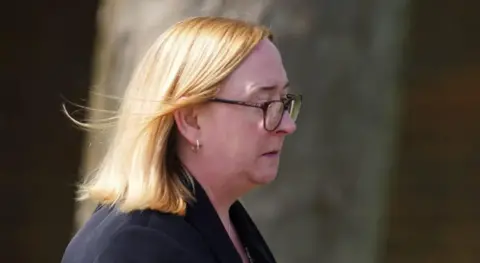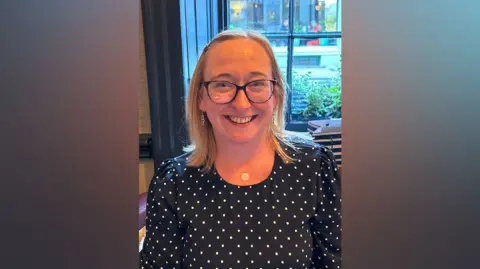
 PA Media
PA Media
Nicola Packer cried as she was acquitted at Isleworth Crown Court
A woman accused of having an illegal abortion has been cleared by a jury.
Nicola Packer, 45, cried as she was acquitted of "unlawfully administering to herself a poison or other noxious thing" with the "intent to procure a miscarriage".
Isleworth Crown Court heard she took abortion medicine at home during a coronavirus lockdown, in November 2020, when she was about 26 weeks pregnant. Ms Packer then delivered the baby and took her the next day to Chelsea and Westminster Hospital in a backpack.
The legal limit for taking medication at home to terminate a pregnancy is 10 weeks, while the outer limit for any abortion in England, Scotland and Wales is 24 weeks, apart from in certain circumstances.

 PA Media
PA Media
Ms Packer was supported by friends in the public gallery, who hugged one another as the verdict was delivered
Ms Packer, who was 41 at the time, took the medications mifepristone and misoprostol, which were prescribed over the phone due to Covid restrictions.
Prosecutors alleged that Ms Packer knew she had been pregnant for more than 10 weeks, which she denied.
Giving evidence during her trial, Ms Packer spoke of her "shock" and "surprise" at being pregnant.
She told the jury: "If I had known I was that far along I wouldn't have done it."
She added: "I wouldn't have put the baby or myself through it."
Jurors heard Ms Packer spent the night of 7 November in hospital and was arrested by police the next day.
Ms Packer was supported by friends in the public gallery, who hugged one another as the verdict was delivered.
Jurors deliberated for more than six hours to reach their unanimous verdict.
'Stop these criminal proceedings'
The Royal College of Obstetricians and Gynaecologists said the trial demonstrated "just how outdated and harmful" current abortion law was and called for reform.
The college's president, Dr Ranee Thakar, said: "As a doctor, I am acutely aware of how vital it is that women can access essential healthcare in a safe and supportive environment.
"Restrictive abortion laws in England and Wales nurture an environment of fear, stigmatisation and criminalisation. Abortion reform is urgently needed, and now is the time for change."
The college said it had joined with healthcare professionals and experts "from over 30 other medical, legal and public health bodies" to call on Parliament to "take urgent action to protect women's essential reproductive rights and stop these criminal proceedings".

 3 hours ago
5
3 hours ago
5













































